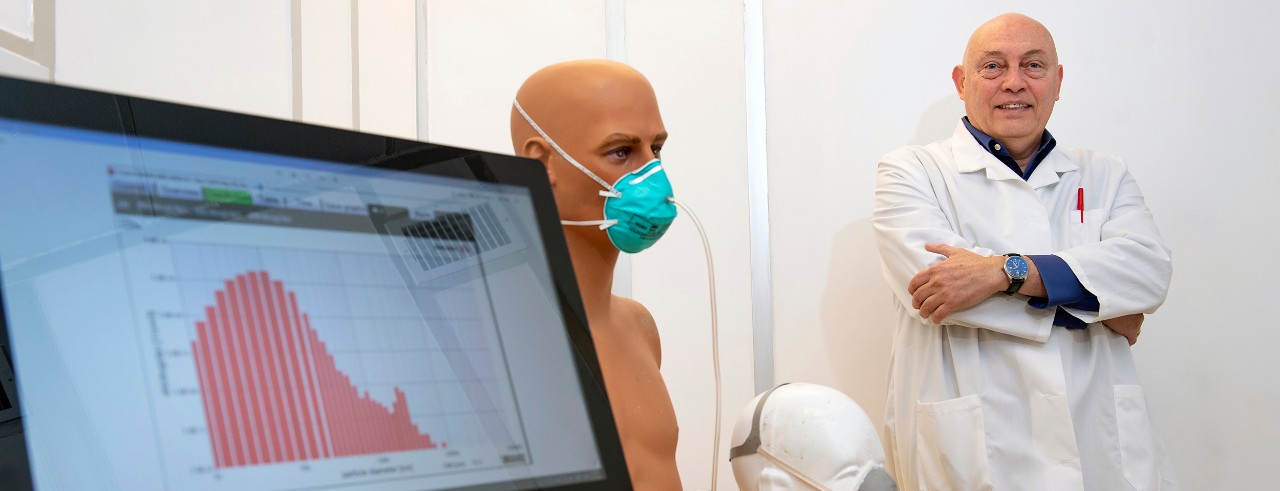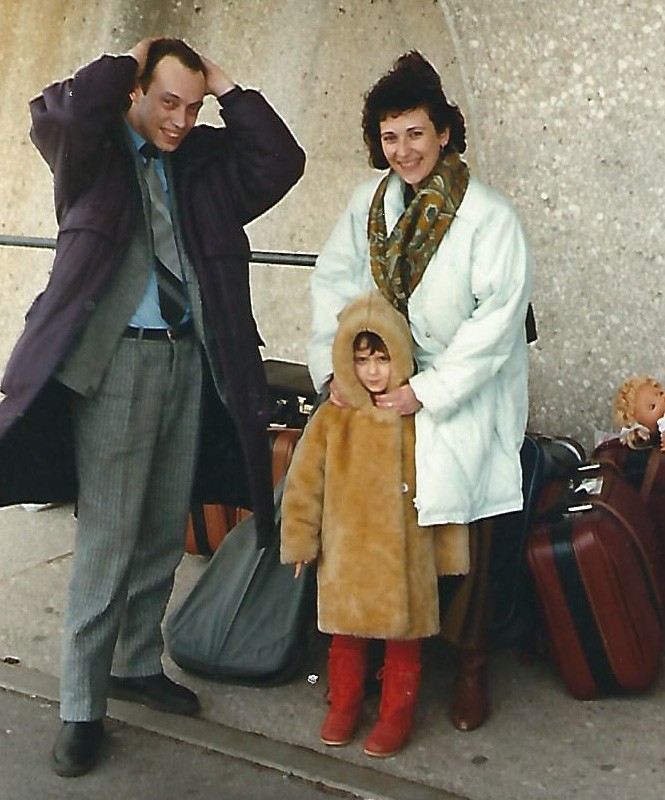
Grinshpun closely watching war in his native Ukraine
UC environmental health scientist was raised in Odessa, Ukraine
Like most Ukrainians around the world, Sergey Grinshpun, PhD, and his family have been glued to their televisions and the internet for the latest news on the ongoing war in Ukraine.
“Between the TV and the internet and numerous telephone conversations, we try to find out what is happening on an hourly basis over the past five days and nights,” Grinshpun says. “So far, everyone is relatively safe among our friends and relatives. No one is wounded or killed, but psychologically, they are affected as their beautiful cities have been turned into war zones. It’s absolutely unimaginable.”
Grinshpun, a professor in the Department of Environmental and Public Health Sciences, has relatives in Kiev and Odessa and many good friends throughout Ukraine. Fortunately, he and his wife, Victoria Appatova, PhD, a professor at UC Clermont, have managed to remain in close contact with everyone via telephone calls, which sometimes get interrupted or suffer poor connections, and via social media apps, such as WhatsApp, Facebook Messenger and Viber.
“We talk with them when they are in bomb shelters and when they are coming out of bomb shelters. Some of them are fighting at the front line,” he says.
Grinshpun was raised in Odessa, a port city on the Black Sea in southwestern Ukraine and the third largest city in the country. His family has lived there for generations. He began working at the University of Odessa after receiving his doctorate in thermophysics and aerosol science there. Ukraine was one of the members of the Soviet Union when in 1990 efforts began for its independence. With the collapse of the Soviet Union in 1991, Ukrainians voted for independence in December 1991.
In February 1991, Grinshpun, his wife, and 3-year-old daughter, Sasha, left Odessa for Cincinnati, where he had been offered a visiting professorship in the Department of Environmental Health. The yearlong professorship was later extended and then Klaus Willeke, PhD, UC professor of environmental health, who created and led the Aerosol Research and Exposure Assessment Laboratory, offered Grinshpun a permanent faculty position. Grinshpun accepted and since 2000 has been a full professor and the founding director of the Center for Health-Related Aerosol Studies.

Sergey Grinshpun, PhD, his wife, Victoria Appatova, PhD, and their then 3-year-old daughter, Sasha, after arriving in Washington, DC, from the Ukraine in 1991. (Grinshpun family photo)
Grinshpun says that what has surprised him is that the ongoing war is between two Slavic nations which in the past have been close despite some tragic events in their history. He believes that the annexation of Crimea by Russia in 2014, multiple provocations in Eastern Ukraine, and finally this invasion have damaged the relationship between the two peoples in a major way, which is unfortunate.
He finds remarkable and admirable that Ukrainians have put aside their political arguments and are determined to defend their country, demonstrating a true heroism when fighting the aggressor.
“A half a year ago or even a month ago we witnessed various ideological arguments within Ukraine among different political groups. Some decisions made by the past and present Ukrainian administrations were far from perfect, in my view. However, when facing this aggression, the Ukrainians managed to build a powerful united front. It’s a totally different country now. People are ready to die for their freedom and independence from Russia,” he says.
One thing he wants Americans to understand is that not all Russians are to blame.
“What I don’t like is a black and white picture: all Ukrainians are good, and all Russians are bad,” Grinshpun says. “It was Putin’s leadership, not the people of Russia, that started this war. There are a lot of people in major cities, such as Moscow and St. Petersburg as well as throughout the Russian Federation, who are protesting the war and they are putting their lives at risk. Many have been arrested right on the spot. I admire the part of the Russian inteligencia, students, everyone there who find the courage to demonstrate. Their actions may become the beginning of the end of Putin’s regime.”
Since leaving his homeland in 1991, Grinshpun has only returned twice to Ukraine. He visited there about 10 years ago with his oldest daughter, Sasha, now an attorney and a member of the Montgomery City Council, and then was there again three years ago with his wife and youngest daughter, Leah, who was born in Cincinnati and is now a medical student at A.T. Still University. He hopes for a quick end to the fighting and peace restored to his native country. He also hopes that the United States and other countries around the world will quickly rush aid to Ukraine.
“We’re trying now to push our representatives in the U.S. government to provide the additional help immediately. The immediacy of this help is the most important factor in my mind," he said. "My friends fighting in Ukraine are holding up but they cannot do it forever. The Russian armed forces are overwhelming and one important thing we must do now is to expedite any kind of help we can because tomorrow could be too late. If, God forbid, Putin was to swallow Ukraine, I think some other European countries will be next even if they are members of NATO and maybe one day this war could actually knock on our door here. They need our help now.”
Featured image at top/Colleen Kelley/UC Creative + Brand.
Related Stories
'Paradigm-shifting' study confirms effectiveness of long-acting HIV treatment
February 26, 2026
The results of a clinical trial involving the University of Cincinnati, recently published in The New England Journal of Medicine, show people failing HIV treatments with oral medications were able to be treated successfully using injections.
UC receives grant for AI use in medical education
February 26, 2026
The University of Cincinnati is turning to artificial intelligence to help solve a problem in medical training. The College of Medicine was awarded a grant valued at more than $1 million to use AI in advanced physician training through personalized learning.
New study links gut makeup to celiac disease development
February 25, 2026
Specific genetic architecture in the gut microbial ecosystem can shape microbial composition in ways that are potentially relevant to the pathogenesis of celiac disease, according to a study published this month in Nature Genetics.
